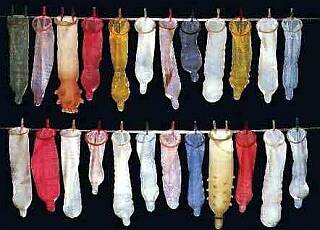
We have all had the sex talk, and some of us might have even paid a little attention to what can happen if you have unprotected sex. Or, for those of you who read the G-Spot, you learned what you needed through more entertaining stories about someone else. For those who skipped that awkward parent-child conversation about the birds and the bees, though, here is a simple crash course.
Use protection.
No matter if you think you have super-sperm (boys), or don’t think that you’ll ever have to try out for the MTV show Teen Moms (girls), be smart and keep a stash of Trojans in the bedside table just in case. Not just for the sake of saving you from having a baby to worry about, but for your own health. We don’t live in the 1800’s anymore; chances are you aren’t your partner’s first. (Didn’t you learn anything at orientation?)
Condoms protect against most STD (sexually transmitted disease) and STI (sexually transmitted infection) and keep those who have one from spreading them. In today’s world, roughly 12 million men and women are infected with some sort of STD or STI, and out of that, almost half are those in the college-age bracket.
Meanwhile, here in America, the amount of STDs and STIs are going up but the amount of condoms sold to those in the college age bracket isn’t. Why?
Sophomore Justin Delcarvino thinks he knows why.
“They are expensive,” said Delcarvino. “And if you don’t have a car you are stuck with either having to bum one off of your friends or buying one in Kessel along with your sandwich, which is awkward.”
Many schools in our nation have begun to take notice and decided to step in and give out the necessary protection to its students to help keep the visits to the clinic and amount of unplanned pregnancies to a minimum.
But what about here at Pace?
Although our student body number is roughly the same amount of a large high school, our sex drive is the same as any other hormone-infested campus. Who can blame us?
“We are all adults and we live in a time where we are able to take responsibility for our own sexual actions,” said junior psychology major Veronica Messina. “If you are someone who enjoys a great one night stand, go for it! No one can tell you no.”
And she is correct.
Unlike schools such as BYU or even Fordham University where premarital sex is banned and the rules against opposite sexes being in the same dorm room are strictly enforced, Pace is pretty lenient toward what happens in your personal life.
So here is the real question: should Pace give out free condoms?
“I know that we have the option to go to the health center for condoms, but unless you are someone who is in the gym constantly to stop by or are planning on getting laid that night, you don’t always think to go over,” said Messina.
“Part of it is that I feel like Pace doesn’t want to promote it. Parents visit, and what parent wants to move their kid into a dorm house and see a condom dispenser in the bathroom?” said senior education major Nicholas Lopez. “Also I feel like we have never had a problem with it, we don’t have a huge pregnancy population and no complaints of not supplying it have ever been brought up.”
Along with the University Health Center, many student organizations throw events about safe sex and give out condoms at the event. This last Oct., Sigma Lambda Upsilon held a safe sex event outside of Kessel on Gottesman patio in which Planned Parenthood came to offer testing, protection, Plan B, and pamphlets on anything from how to properly use a condom to what each STD is.
Pace isn’t a prude school and wants us to be educated in our health choices—so while it may not be raining condoms in the hallways like Mardi Gras beads in New Orleans, you still can get the needed supplies to have a great night.

